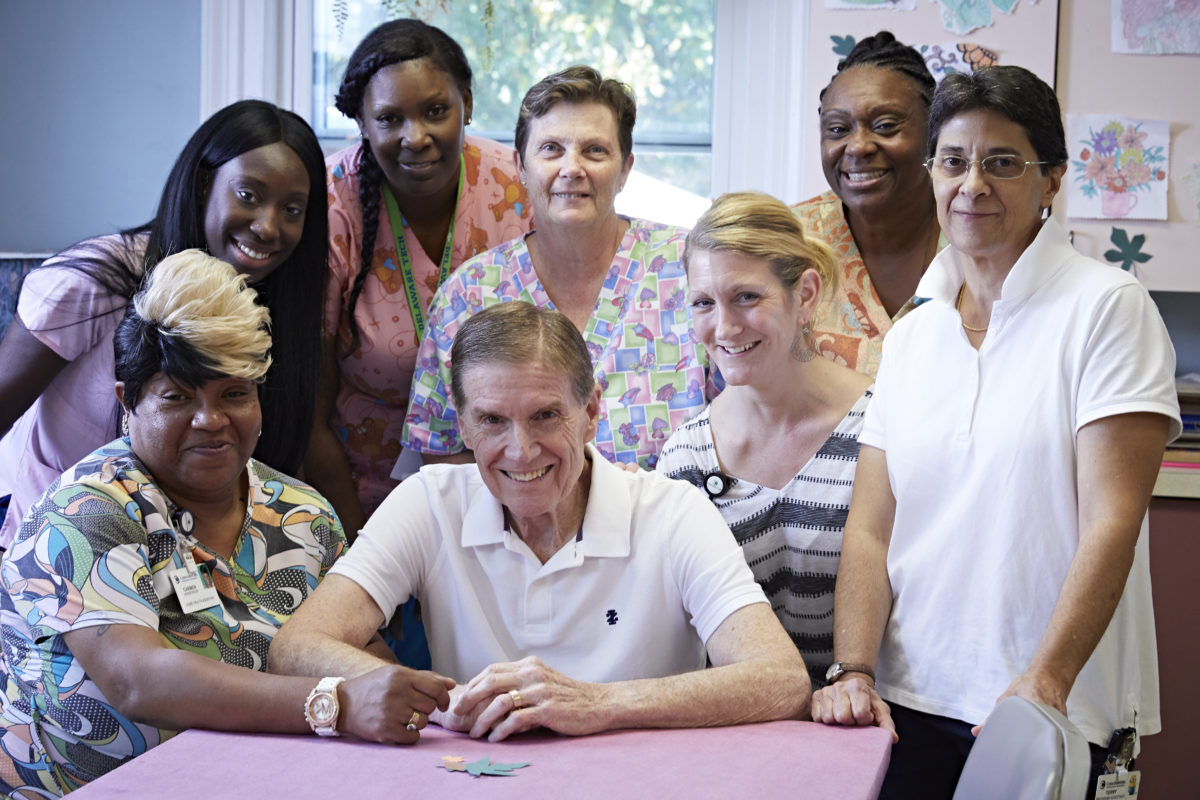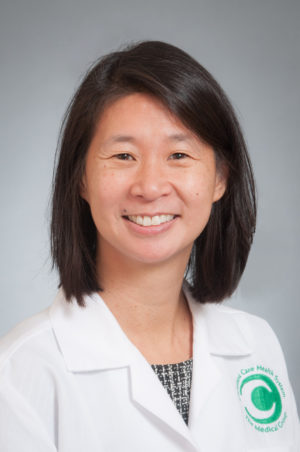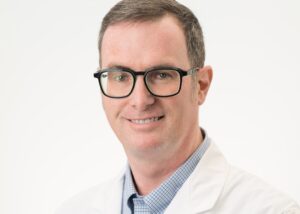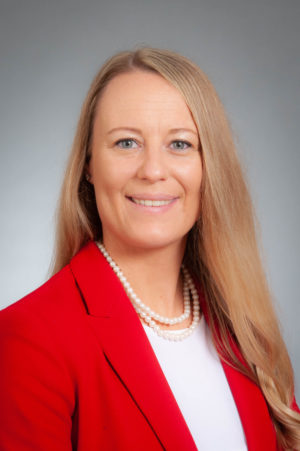Because of a family history of Alzheimer’s, Fran Heinig said she and her husband Jeff recognized his symptoms of the disease early and were able to manage them on their own for a while. Married for 34 years, the Yorklyn couple was well-established in a community of friends and supported by family nearby. Yet, as her husband’s symptoms progressed, she knew the time had come to seek help. The disease was changing their lives completely.
An online search led her to Christiana Care’s Evergreen Center, an adult day care program operated by the Christiana Care Visiting Nurse Association. She scheduled a tour, and by its conclusion she was confident that this “hidden gem” in suburban Wilmington was the place for her husband and the answer to her own need for respite.
The Evergreen Center, which has served families facing Alzheimer’s now for three decades, is the only Alzheimer’s-specific adult day program in Delaware. Supported through a grant from the Delaware Health and Social Services Division of Services for Aging and Adults with Physical Disabilities, the program is offered Monday through Friday, 8 a.m. to 4 p.m. The Evergreen Center’s wide variety of daily activities — dancing, exercise, crafts, parties, music and more — allow the friends who attend to enjoy each other’s company, reminisce about cherished memories and chat about current events.
At first, she took Jeff to Evergreen Center just two days a week. Before long, he wanted to go every day. She says he seems happier, and the extra support gives her a chance to catch up with the daily activities of life — cleaning, laundry, dental appointments and time with grandchildren and friends — that often fall by the wayside when a relative becomes a full-time caregiver. The Evergreen Center staff works with families to select a schedule that works best. For some, select respite days offer the ideal support.
Alzheimer’s is a slow-progressing form of dementia that gradually robs people of their memory and the ability to perform daily tasks. As many as 17,000 Delawareans over the age of 65 are currently living with Alzheimer’s disease, according to the Alzheimer’s Association. That number is expected to climb by nearly 30 percent over the next decade. Nationally, a new case is diagnosed almost every minute.
More than 50,000 Delawareans bear the unpaid costs of caring for loved ones facing an unforgiving dementia-related diagnosis.
“You make little adjustments as behaviors change until it starts taking up your whole day, from being the chauffeur and caregiver to remembering what he wore yesterday so he doesn’t hang it back in the closet and wear it again tomorrow,” she said. “Laughing and humor get you through for a while, but eventually it gets to a point where it becomes dangerous to do this on your own, especially if your loved one starts wandering away, as Jeff did.”
We are their respite
Program Director Brooke Groff, BSN, RN, CDP, said the Evergreen Center’s full-day model of therapy, recreation and cognitive skill-building features stimulating activities that help participants with social skills, stress management and self-confidence. Nutritionally balanced meals and snacks provide further opportunity for socialization.
“Our families tell us they wouldn’t know what do without us,” Groff said. “We become part of their family. We are their respite.”
Each member of the Evergreen Center staff is oriented with 40 hours of dementia-specific training and has a professional passion for serving those with Alzheimer’s. The team also includes a certified therapeutic recreation therapist and three certified dementia practitioners, including Groff, who stay current with trends, ethics, regulations, medications and new developments that pertain to memory disorders. They are able to direct families toward community-based resources and facilitate conversations with neurologists to adjust medications and treatment plans.
The Evergreen Center is also helping to train the next generation of dementia specialists, serving as a clinical site for University of Delaware nursing students and for resident physicians enrolled in the geriatric medicine rotation.
Ina Li, M.D., director of clinical geriatrics for Christiana Care, who provides medical oversight for the Evergreen Center as medical director of the VNA, said the full agenda of activities — art projects, current and historical event discussions, dancing, talking and laughing with friends during lunch — is key to keeping those with Alzheimer’s engaged, stimulated and active.
“Our goal is to help families facing Alzheimer’s disease see that there is still much life to be enjoyed,” said Dr. Li. “By offering access to the care they need at the right place and in the right time, Evergreen Center truly serves as a wonderful haven for families.”
Footprints on our hearts
Enrolling her husband in the Evergreen Center gives Mrs. Heinig a few hours for herself each day, and she finds it easier to care for him at home in the evening, she said, thanks to a day of pleasant, stimulating activities.
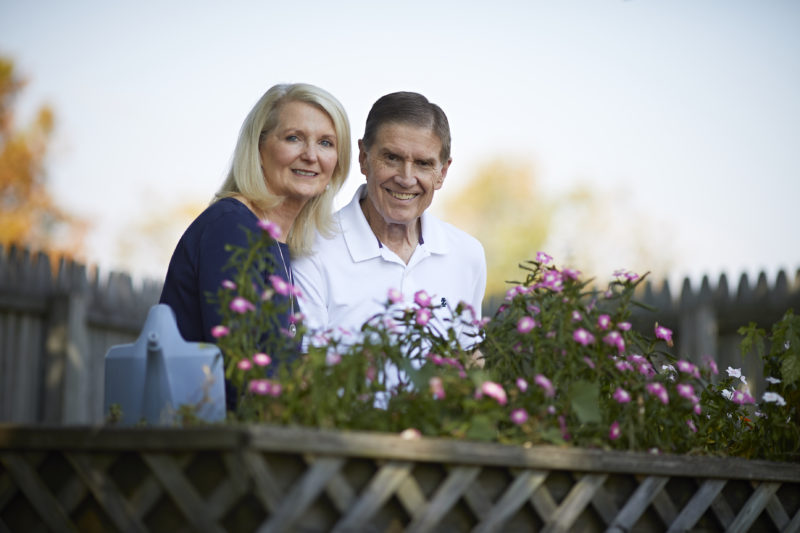
“Every single staff member is totally involved with the patients,” she said. “I can’t say enough about what the Evergreen staff is able to do.”
As part of its family-centered approach, Evergreen team members take the time each day at drop-off and pick-up to update family caregivers about the day’s events and how their loved one responded. The staff also provides weekly reports, monthly nursing assessments and regularly scheduled care plan meetings to help families monitor progress, identify needs and make necessary adjustments. At monthly support group meetings, caregivers have the chance to share with and learn from others facing similar challenges.
“We are here for our families in any way they need us,” said Program Assistant Kim Bolden-Johnson, CNA, CDP. “We love each person who walks through that door. They leave smiles on our faces and footprints on our hearts.”
Fran Heinig understands why family members may hold out on finding help for Alzheimer’s, trying to do it all on their own. Her advice, though, is for families to explore available resources even before they think they need the help.
“Now is the time to call and see what is available for when you are ready for help,” she said. “As family members going through this for the first time, we are finding our way. There are people at the Evergreen Center to help make this journey a lot easier. I call them angels.”
